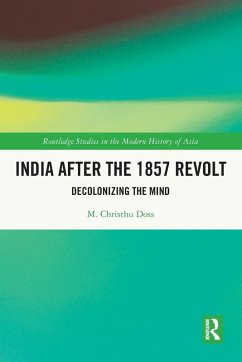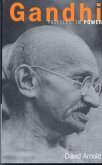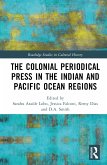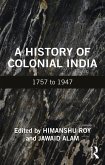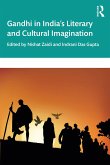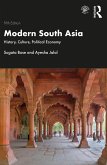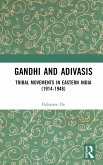Weaving together the varied and complex strands of anti-colonial nationalism into one compact narrative, Christhu Doss takes an incisive look at the deeper and wider historical process of decolonization in India.
In India after the 1857 Revolt, Doss brings together some of the most cutting-edge thoughts by challenging the cultural project of colonialism and critically examining the multi-dimensional aspects of decolonization during and after the 1857 revolt. He demonstrates that the deep-rooted popular discontent among the Indian masses followed by the revolt generated a distinctive form of decolonization movement-redemptive nationalism that challenged both the supremacy of the British Raj and the cultural imperatives of the controversial proselytizing missionary agencies. Doss argues that the quests for decolonization (of mind) that got triggered by the revolt were further intensified by the Indocentric national education; the historic Chicago discourse of Swami Vivekananda; the nonviolent anti-colonial struggles of Mahatma Gandhi; the seditious political activism displayed by the Western Gandhian missionary satyagrahis; and the de-Westernization endeavours of the sandwiched Indian Christian nationalists.
A compelling read for historians, political scientists and sociologists, it is refreshingly an indispensable guide to all those who are interested in anticolonial struggles and decolonization movements worldwide.
In India after the 1857 Revolt, Doss brings together some of the most cutting-edge thoughts by challenging the cultural project of colonialism and critically examining the multi-dimensional aspects of decolonization during and after the 1857 revolt. He demonstrates that the deep-rooted popular discontent among the Indian masses followed by the revolt generated a distinctive form of decolonization movement-redemptive nationalism that challenged both the supremacy of the British Raj and the cultural imperatives of the controversial proselytizing missionary agencies. Doss argues that the quests for decolonization (of mind) that got triggered by the revolt were further intensified by the Indocentric national education; the historic Chicago discourse of Swami Vivekananda; the nonviolent anti-colonial struggles of Mahatma Gandhi; the seditious political activism displayed by the Western Gandhian missionary satyagrahis; and the de-Westernization endeavours of the sandwiched Indian Christian nationalists.
A compelling read for historians, political scientists and sociologists, it is refreshingly an indispensable guide to all those who are interested in anticolonial struggles and decolonization movements worldwide.
"In Dr. Christhu Doss's book India After the 1857 Revolt: Decolonising the Mind, we are treated to a clear, sophisticated, and pioneering analysis of decolonization in the Indian context. Dr. Doss's insights are penetrating and fresh. He asks questions that are not often asked. He plunges into primary sources and emerges with renewed perspectives, most poignantly around issues concerning colonial Christian missionary agencies, conversion, political resistance, and historical problematization rooted in the famous 1857 revolt. It is a fascinating read that revisits some of the key characters of the late 19th and early 20th century-characters that surely shaped the future of India-such as Annie Besant and Mahatma Gandhi. Dr. Doss is at his very best when analyzing the complex relationship between Indian Christians, Western missionaries, and the emerging Indian independence from Britain. Dr. Doss successfully argues that Indian Christians were not fall-in-line supporters of British imperialism. Not at all. Rather, most Indian Christians were committed nationalists who challenged colonial hegemony. They worked for Indian independence, and an effective confluence of their beloved religion-Christianity-with their equally beloved motherland, India. I strongly recommend this book."---Dyron B. Daughrity, Professor of Religion, Pepperdine University in Malibu, California
"This book is a richly documented study of the intercultural interactions of quite different stakeholders in mid-nineteenth century colonial India, coming together in resisting colonial suppression and missionary efforts to turn India into a Christian space. It traces how the movement of decolonisation, erupting in the unsuccessful 1857 Revolt as a key moment, was then carried forward to the inevitable transfer of power in 1947. Chapters on educational inputs, the role of Indian nationalists, Western Gandhian missionary satyagrahis, and Indian Christian patriots in this movement are woven into an intriguing account that retains much contemporary relevance in ongoing decolonisation struggles, now within a globalised context."---Werner Menski, Emeritus Professor of South Asian Laws, SOAS, University of London, UK
"This book is a richly documented study of the intercultural interactions of quite different stakeholders in mid-nineteenth century colonial India, coming together in resisting colonial suppression and missionary efforts to turn India into a Christian space. It traces how the movement of decolonisation, erupting in the unsuccessful 1857 Revolt as a key moment, was then carried forward to the inevitable transfer of power in 1947. Chapters on educational inputs, the role of Indian nationalists, Western Gandhian missionary satyagrahis, and Indian Christian patriots in this movement are woven into an intriguing account that retains much contemporary relevance in ongoing decolonisation struggles, now within a globalised context."---Werner Menski, Emeritus Professor of South Asian Laws, SOAS, University of London, UK

